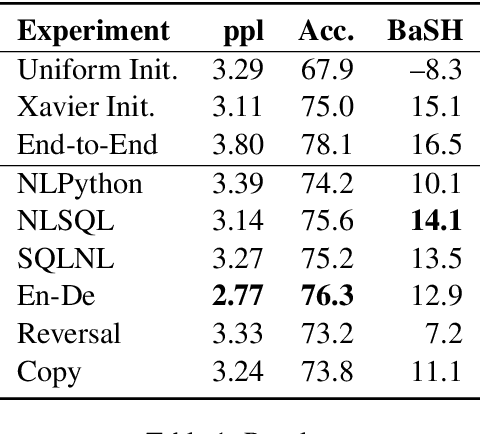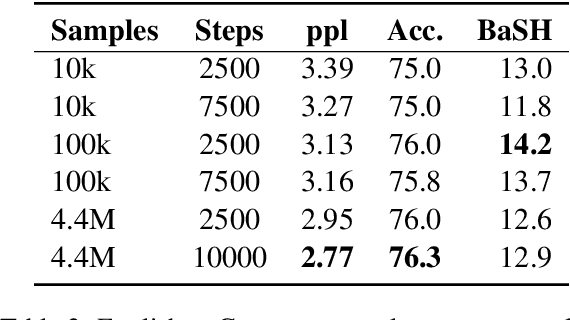Kyle Duffy
Command A: An Enterprise-Ready Large Language Model
Apr 01, 2025



Abstract:In this report we describe the development of Command A, a powerful large language model purpose-built to excel at real-world enterprise use cases. Command A is an agent-optimised and multilingual-capable model, with support for 23 languages of global business, and a novel hybrid architecture balancing efficiency with top of the range performance. It offers best-in-class Retrieval Augmented Generation (RAG) capabilities with grounding and tool use to automate sophisticated business processes. These abilities are achieved through a decentralised training approach, including self-refinement algorithms and model merging techniques. We also include results for Command R7B which shares capability and architectural similarities to Command A. Weights for both models have been released for research purposes. This technical report details our original training pipeline and presents an extensive evaluation of our models across a suite of enterprise-relevant tasks and public benchmarks, demonstrating excellent performance and efficiency.
Command R7B Arabic: A Small, Enterprise Focused, Multilingual, and Culturally Aware Arabic LLM
Mar 18, 2025Abstract:Building high-quality large language models (LLMs) for enterprise Arabic applications remains challenging due to the limited availability of digitized Arabic data. In this work, we present a data synthesis and refinement strategy to help address this problem, namely, by leveraging synthetic data generation and human-in-the-loop annotation to expand our Arabic training corpus. We further present our iterative post training recipe that is essential to achieving state-of-the-art performance in aligning the model with human preferences, a critical aspect to enterprise use cases. The culmination of this effort is the release of a small, 7B, open-weight model that outperforms similarly sized peers in head-to-head comparisons and on Arabic-focused benchmarks covering cultural knowledge, instruction following, RAG, and contextual faithfulness.
Structural Transfer Learning in NL-to-Bash Semantic Parsers
Jul 31, 2023

Abstract:Large-scale pre-training has made progress in many fields of natural language processing, though little is understood about the design of pre-training datasets. We propose a methodology for obtaining a quantitative understanding of structural overlap between machine translation tasks. We apply our methodology to the natural language to Bash semantic parsing task (NLBash) and show that it is largely reducible to lexical alignment. We also find that there is strong structural overlap between NLBash and natural language to SQL. Additionally, we perform a study varying compute expended during pre-training on the English to German machine translation task and find that more compute expended during pre-training does not always correspond semantic representations with stronger transfer to NLBash.
 Add to Chrome
Add to Chrome Add to Firefox
Add to Firefox Add to Edge
Add to Edge